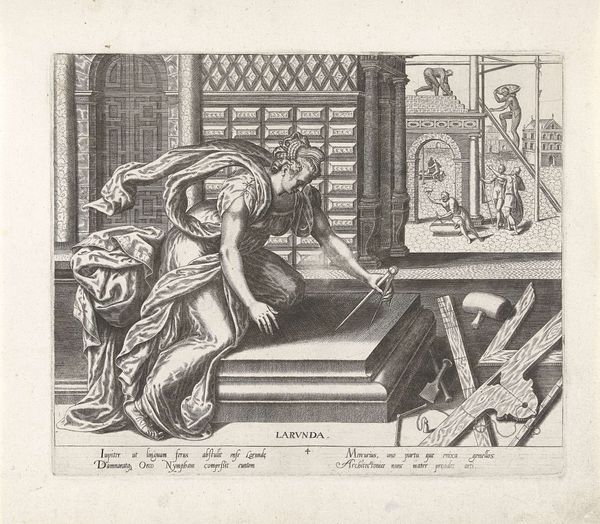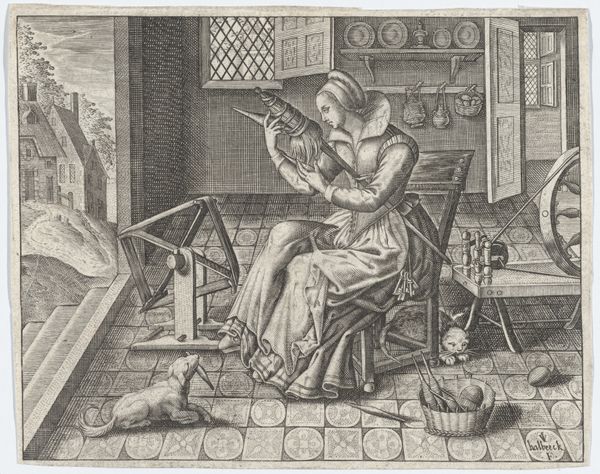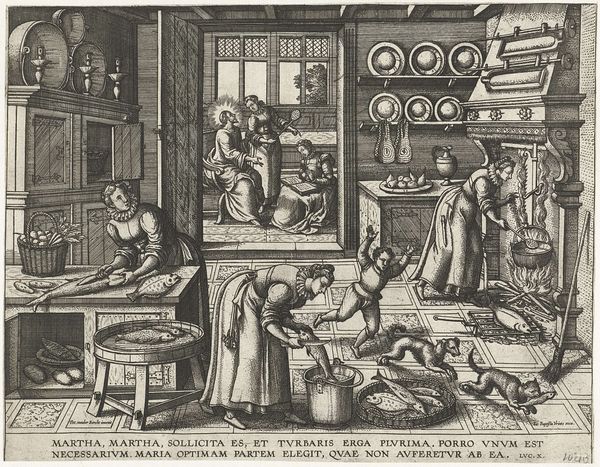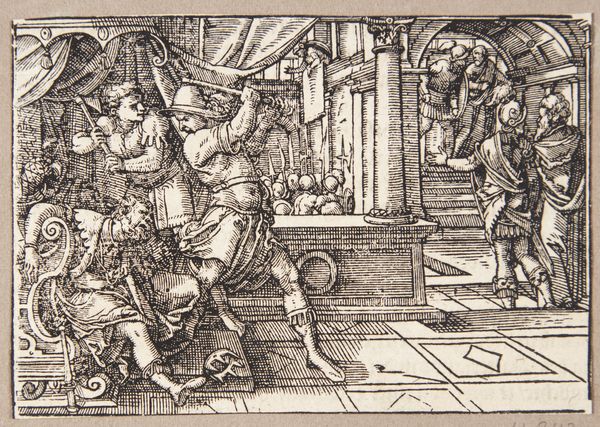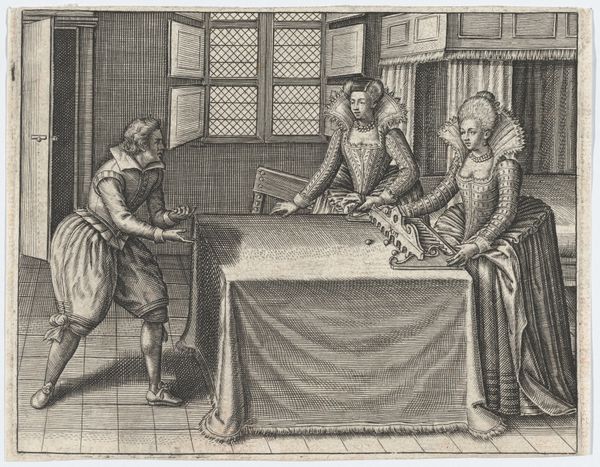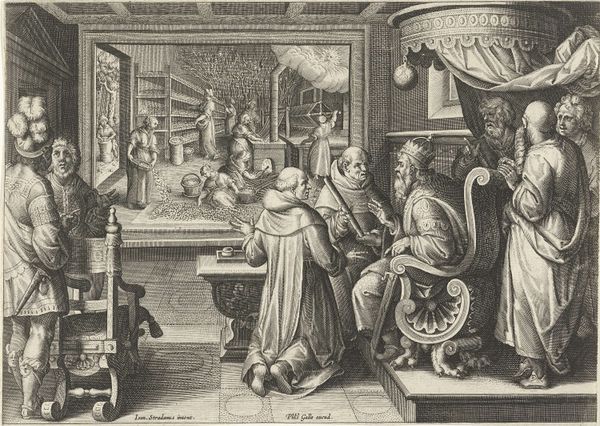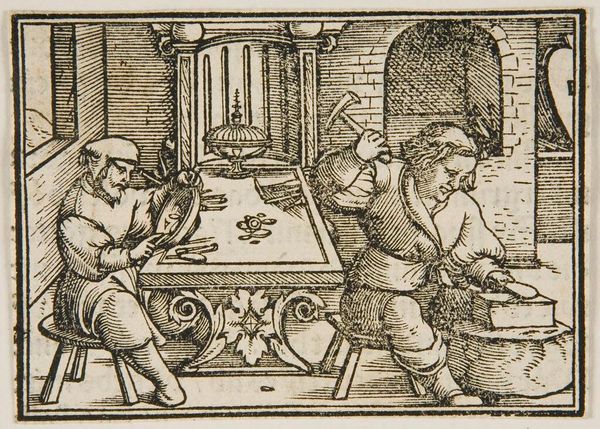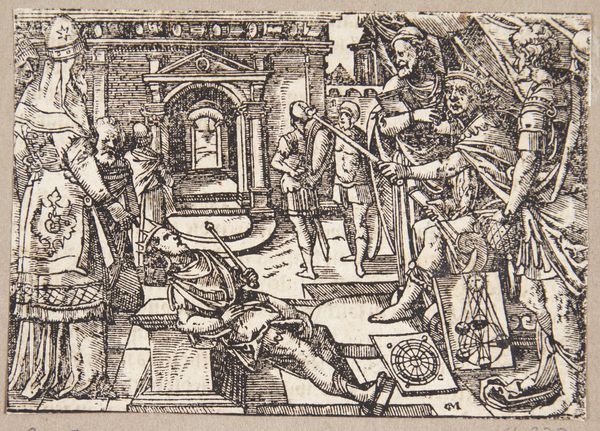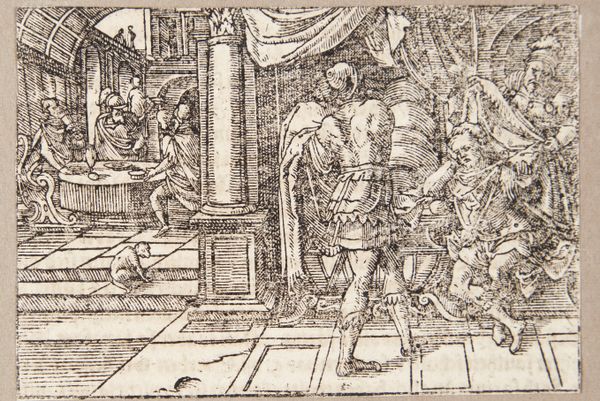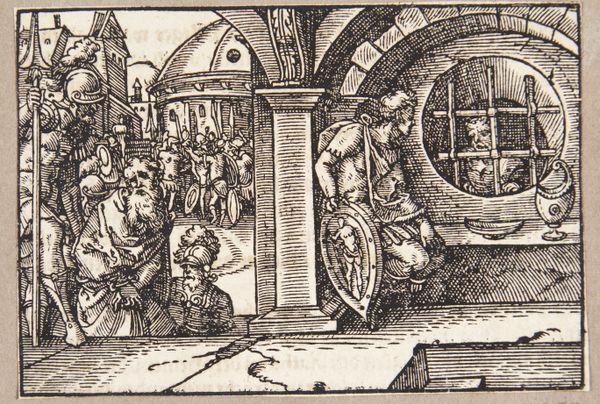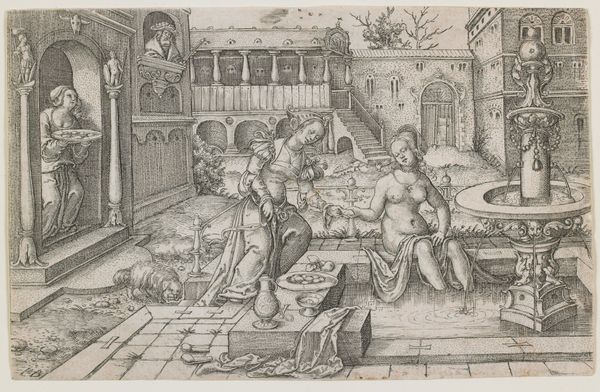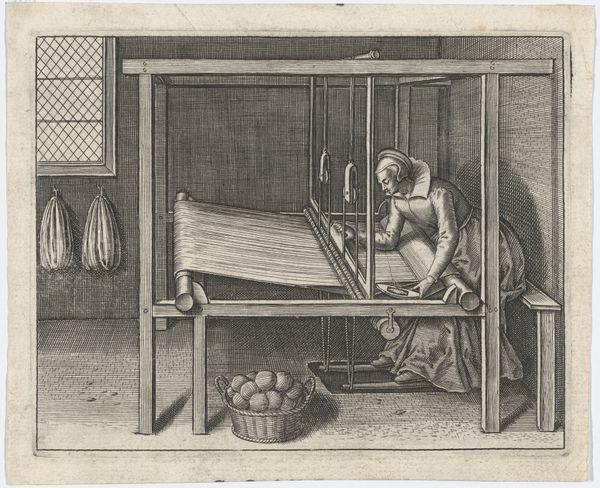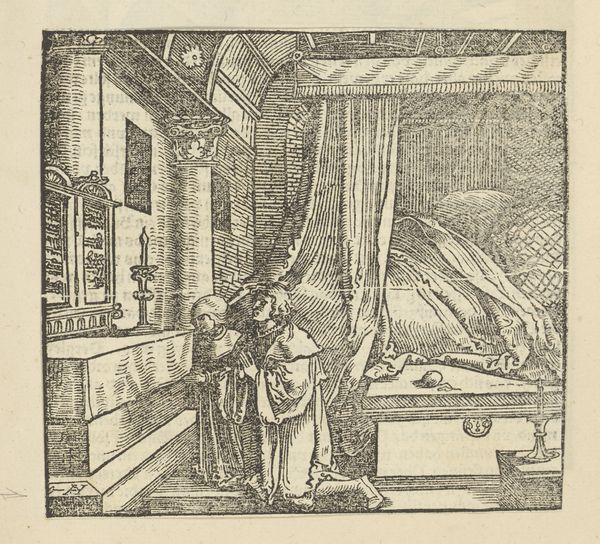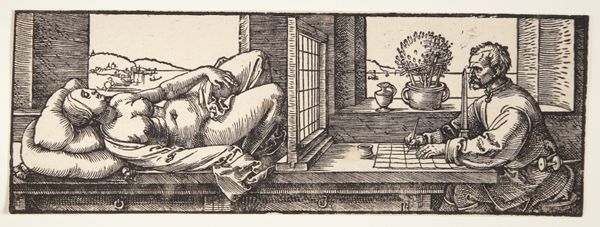
Copyright: Public domain
Lucas Cranach the Elder painted "Albrecht of Brandenburg as St. Jerome in his Study" in the 16th century. Here, Albrecht is depicted as St. Jerome, surrounded by potent symbols, hinting at worldly and spiritual tensions. Consider the lion, traditionally associated with St. Jerome, symbolizing courage and royalty. Yet, it also evokes the untamed, primal aspects of human nature. We see the motif of the lion much earlier, for example, in Mesopotamian art where it is a symbol of power. Throughout history, the lion has appeared in different guises, sometimes representing strength, other times, a more sinister force. This symbol's persistence and adaptation speaks to our collective fascination with power. Note how the animals blend together in the foreground in an intimate proximity. It’s a visual motif that has an emotional charge which engages viewers on a subconscious level. The image echoes through time, showing us that symbols are not static but cyclically re-emerge, evolving with each new cultural landscape.
Comments
No comments
Be the first to comment and join the conversation on the ultimate creative platform.
